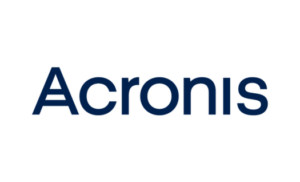In today’s dynamic business world, where competition for the best prepared profiles is fierce and the search for talent has become a constant priority, internal communication has become a fundamental pillar in the success of organizations. In this context, HR departments play a crucial role in understanding that effective communication among their employees is not only a useful tool, but a key strategy to attract, retain and promote talent.
The link between internal communication and talent attraction
Imagine a company as a living organism, where the cells are its employees. Internal communication acts, in a way, as the nervous system, allowing the different parts of the organization to communicate and coordinate efficiently. When a company has a solid internal communication, it transmits a positive and transparent image, becoming a magnet for talented professionals.
Attracting the best profiles is not only about offering competitive salaries. Increasingly, it is also based on showcasing the company’s culture and values. Effective communication serves as a window into this world of the organization, revealing the organization’s mission, vision and accomplishments, thus creating an attractive environment for those who seek more than just a job, but a purpose.
Retention through ongoing dialog
Talent retention is a constant challenge for Human Resources departments. Here, internal communication plays a fundamental role. Encouraging continuous and transparent dialogue helps to create a sense of belonging, but also gives employees the security of being heard and valued.
When employees feel part of an active communication process, they are more likely to commit to the organization in the long term. Internal communication not only has the function of transmitting information from the top down and across the board, but also of establishing a two-way channel where employees’ opinions and suggestions are taken into account. This improves the mood of the whole and creates an emotional bond that strengthens the affinity of the employees.
Promoting talent through clarity and transparency
In a business environment where professional mobility is common, the promotion of professionals and their access to new challenges have become more valuable than ever. In this context, internal communication plays a key role in providing clarity on career development opportunities and promotion paths within the company.
By keeping employees informed about training opportunities, mentoring programs and open positions, internal communication facilitates professional growth. When employees perceive that the company invests in their development, they are more motivated to contribute to the overall success of the organization.
Tangible benefits for Human Resources
The benefits of effective internal communication for HR departments are obvious. From a more efficient selection process to reduced turnover costs, investment in this area translates into significant savings and an improved work environment.
In addition, the constant flow of information allows HR professionals to anticipate and address problems before they become insurmountable obstacles. This, in turn, contributes to the creation of a healthy and collaborative work environment. In this post you can find some examples of companies that effectively applied internal communication to achieve beneficial results for the organization.
In short, internal communication is not simply an administrative aspect, but a strategic tool that can transform the internal dynamics of a company. By recognizing the importance of this element, HR departments can build and maintain a vibrant work environment that attracts, retains and promotes talent, thereby leading the way to sustainable success in today’s business landscape.










